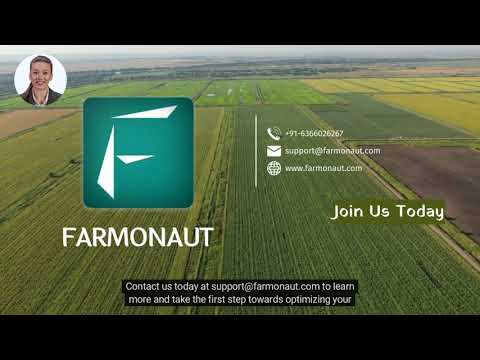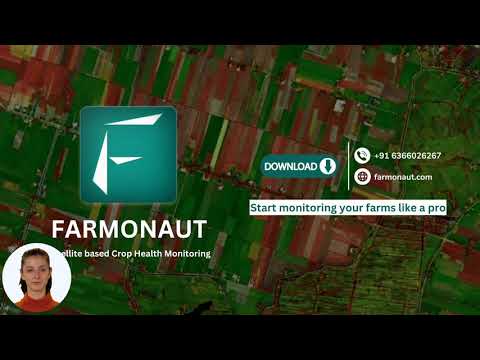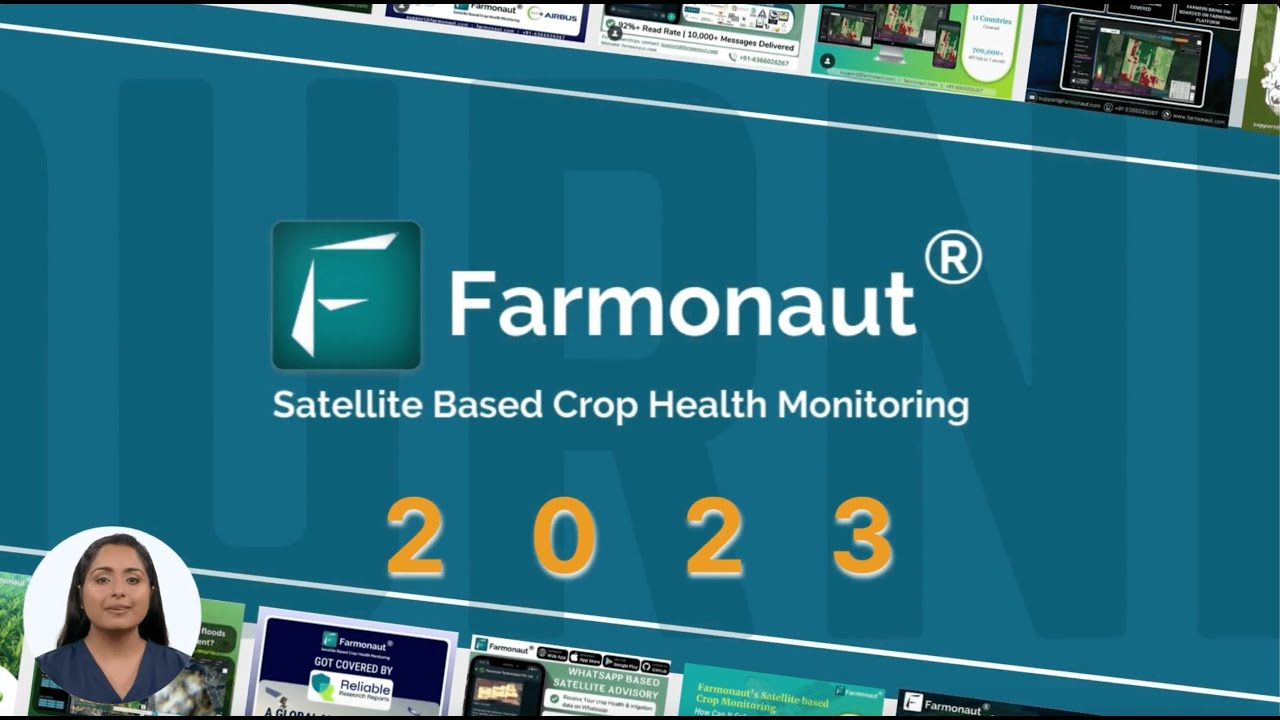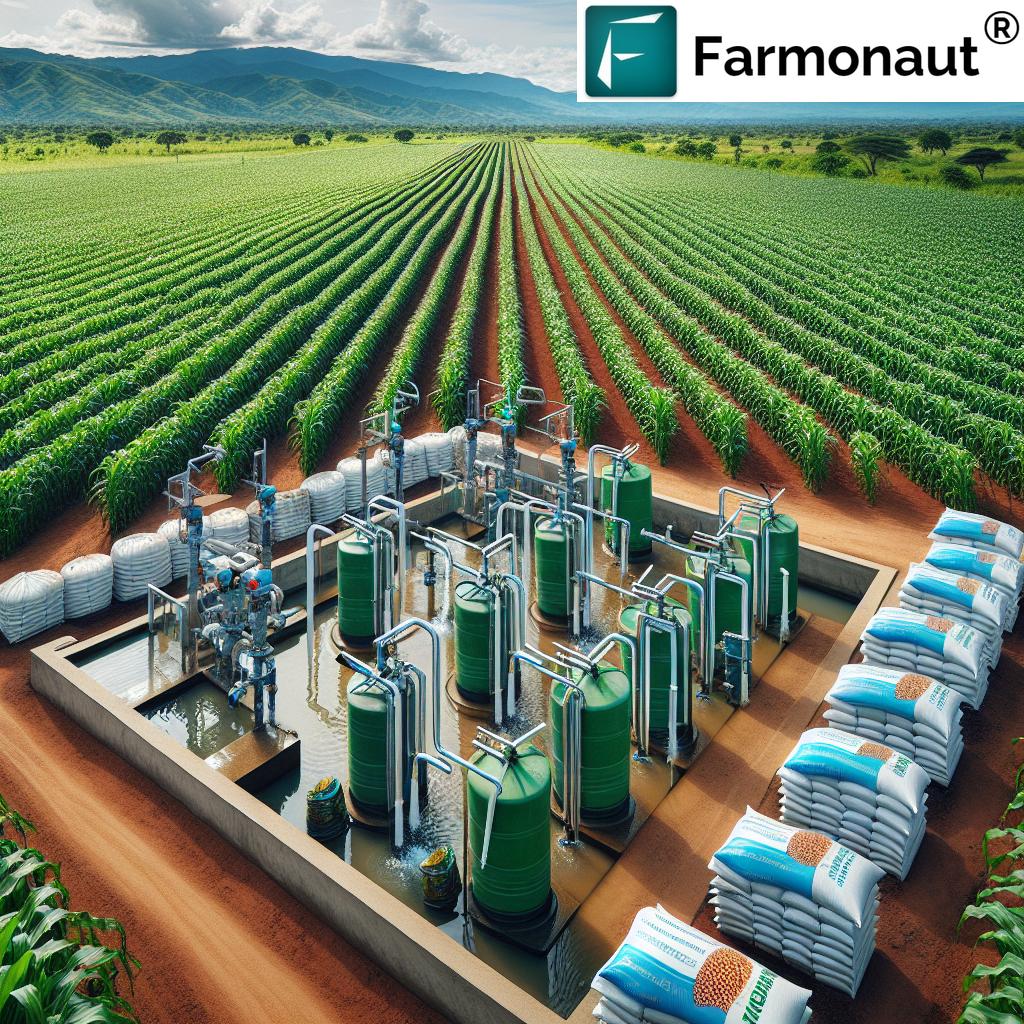Revolutionizing South African Poultry: Innovative Leadership Strategies in Agribusiness Management
“South African poultry executives manage operations producing over 1 million chickens daily, driving significant agricultural sector growth.”

In the dynamic landscape of South African agribusiness, poultry industry executive leadership plays a pivotal role in shaping the future of food production and agricultural sector growth. As we delve into the intricate world of integrated poultry production and agribusiness management strategies, we’ll explore how top executives are revolutionizing the industry through innovative approaches and cutting-edge technologies.
At Farmonaut, we recognize the importance of leveraging advanced agricultural technologies to support the poultry industry’s evolution. Our satellite-based farm management solutions offer valuable insights that can enhance poultry farming efficiency and drive sustainable practices across the sector.
The Evolving Landscape of South African Poultry Industry
The South African poultry industry stands as a cornerstone of the nation’s agricultural sector, contributing significantly to food security and economic growth. As the industry faces challenges ranging from market volatility to resource constraints, innovative leadership strategies have become essential for maintaining competitiveness and driving progress.
- Market Dynamics: Fluctuating feed costs and import competition
- Resource Management: Balancing efficiency with sustainability
- Technological Integration: Adopting agtech solutions for improved operations
- Regulatory Compliance: Navigating complex governance and ethics policies
To address these challenges, poultry industry executives are implementing forward-thinking strategies that encompass every aspect of the value chain, from animal feed innovations to advanced broiler genetics.
Integrated Poultry Production: A Holistic Approach
At the heart of modern poultry agribusiness management lies the concept of integrated poultry production. This comprehensive approach allows companies to control every stage of the production process, from breeding and hatching to processing and distribution. By adopting this model, South African poultry executives are able to optimize efficiency, ensure quality control, and respond swiftly to market demands.
Key components of integrated poultry production include:
- Breeding and Genetics: Developing robust broiler lines for optimal performance
- Feed Production: Formulating nutritious and cost-effective animal feed
- Hatchery Management: Implementing state-of-the-art incubation techniques
- Grow-out Operations: Utilizing efficient broiler farming practices
- Processing and Distribution: Streamlining operations for market responsiveness
By overseeing these interconnected elements, directors and managers can ensure a seamless flow of operations, reducing costs and improving overall productivity.
Innovative Leadership in Feed Management
One of the most critical aspects of poultry production is feed management. As feed costs represent a significant portion of production expenses, innovative leadership in this area can have a substantial impact on a company’s bottom line. South African poultry executives are implementing cutting-edge strategies to optimize feed efficiency and reduce costs while maintaining high nutritional standards.
Advanced feed management strategies include:
- Precision Nutrition: Tailoring feed formulations to specific growth stages and genetic lines
- Alternative Ingredients: Exploring novel protein sources to reduce reliance on traditional inputs
- Feed Mill Automation: Implementing smart technology for consistent quality and reduced waste
- Data-Driven Decision Making: Utilizing analytics to optimize feed conversion ratios
At Farmonaut, we support these efforts through our satellite-based crop monitoring services, which can help poultry companies track the health and yield of feed crops, ensuring a stable supply of high-quality ingredients.
Broiler Genetics Advancements: Breeding for Success
The poultry industry’s relentless pursuit of efficiency and productivity has led to significant advancements in broiler genetics. South African executives are at the forefront of implementing these genetic innovations, working closely with breeding companies to develop lines that offer improved feed conversion, faster growth rates, and enhanced disease resistance.
Key focus areas in broiler genetics include:
- Robustness: Developing birds that thrive in varied environmental conditions
- Feed Efficiency: Selecting for traits that maximize nutrient utilization
- Meat Quality: Breeding for improved texture, flavor, and nutritional profile
- Welfare: Prioritizing bird health and behavioral traits
By investing in advanced breeding programs, South African poultry leaders are setting new standards for productivity and sustainability in the industry.
Agtech Integration: Modernizing Poultry Operations
In today’s digital age, the integration of agricultural technology (agtech) is revolutionizing poultry operations. Forward-thinking executives are leveraging a wide range of technological solutions to enhance efficiency, improve animal welfare, and drive sustainable practices.
Innovative agtech solutions in poultry management include:
- IoT Sensors: Monitoring environmental conditions in real-time
- Artificial Intelligence: Predicting flock health issues and optimizing management practices
- Robotics: Automating repetitive tasks to improve labor efficiency
- Big Data Analytics: Harnessing information for strategic decision-making
Farmonaut’s advanced satellite-based farm management solutions complement these efforts by providing valuable insights into crop health and environmental conditions, supporting informed decision-making in feed production and resource allocation.
Explore our solutions:
Sustainable Poultry Practices: Leading the Way in Environmental Stewardship
As global attention shifts towards sustainable food production, South African poultry industry leaders are taking proactive steps to implement environmentally responsible practices. These initiatives not only address consumer concerns but also contribute to long-term industry viability and resource conservation.
Key areas of focus for sustainable poultry production include:
- Water Management: Implementing closed-loop systems and water recycling technologies
- Waste Reduction: Converting poultry litter into valuable by-products like fertilizer or bioenergy
- Energy Efficiency: Investing in renewable energy sources and optimizing facility design
- Carbon Footprint Reduction: Adopting practices to minimize greenhouse gas emissions
Farmonaut’s carbon footprinting tools can assist poultry companies in tracking and reducing their environmental impact, aligning with global sustainability goals.
“Top poultry industry leaders oversee annual revenues exceeding $1 billion, balancing financial management with operational excellence in agribusiness.”
Financial Management and Operational Excellence
In the competitive landscape of South African poultry production, financial acumen is as crucial as operational expertise. Chief Financial Officers (CFOs) and other executive leaders must navigate complex market dynamics while ensuring profitability and sustainable growth.
Key financial management strategies include:
- Cost Optimization: Implementing lean management principles across operations
- Risk Management: Developing robust hedging strategies for feed costs and currency fluctuations
- Capital Allocation: Prioritizing investments in technology and infrastructure for long-term growth
- Financial Reporting: Ensuring transparency and compliance with governance policies
By balancing financial prudence with strategic investments, South African poultry executives are positioning their companies for long-term success in a volatile market.
Corporate Governance and Ethics in Poultry Agribusiness
As the poultry industry continues to evolve, maintaining strong corporate governance and ethical practices is paramount. South African executives are implementing robust policies to ensure transparency, accountability, and responsible business conduct.
Key aspects of governance and ethics in poultry agribusiness include:
- Board Oversight: Establishing diverse and experienced boards of directors
- Compliance: Adhering to national and international regulatory standards
- Stakeholder Engagement: Maintaining open communication with shareholders, employees, and communities
- Ethical Sourcing: Implementing responsible procurement practices throughout the supply chain
By prioritizing good governance, poultry industry leaders are building trust with consumers and investors alike, creating a foundation for sustainable growth.
Strategic Decision-Making in Poultry Operations
In the fast-paced world of poultry production, the ability to make informed, strategic decisions is a hallmark of effective leadership. Executives must consider a multitude of factors when charting the course for their organizations.
Critical areas for strategic decision-making include:
- Market Expansion: Identifying new opportunities in domestic and international markets
- Product Diversification: Developing value-added products to meet changing consumer preferences
- Vertical Integration: Assessing opportunities to expand control over the supply chain
- Technology Adoption: Evaluating and implementing new technologies for competitive advantage
Farmonaut’s data-driven insights can support these strategic decisions by providing accurate, real-time information on agricultural conditions and trends.
Developing Future Leaders in Poultry Agribusiness
As the industry continues to evolve, cultivating the next generation of poultry agribusiness leaders is crucial. South African executives are investing in comprehensive leadership development programs to ensure a pipeline of talent ready to tackle future challenges.
Key components of leadership development in the poultry sector include:
- Mentorship Programs: Pairing experienced executives with emerging talent
- Cross-Functional Training: Exposing future leaders to various aspects of the business
- Continuous Education: Sponsoring advanced degrees and industry-specific certifications
- Innovation Incubators: Creating spaces for young professionals to develop and test new ideas
By fostering a culture of continuous learning and innovation, South African poultry companies are preparing for long-term success in an ever-changing industry landscape.

The Role of Data in Modern Poultry Management
In today’s digital age, data has become a critical asset in poultry management. South African executives are leveraging big data analytics to gain insights into every aspect of their operations, from flock performance to market trends.
Key applications of data in poultry management include:
- Predictive Analytics: Forecasting market demand and optimizing production schedules
- Performance Tracking: Monitoring key performance indicators across the value chain
- Supply Chain Optimization: Enhancing logistics and inventory management
- Consumer Insights: Analyzing purchasing patterns to inform product development
Farmonaut’s satellite-based monitoring services contribute to this data-driven approach by providing valuable information on environmental conditions that can impact feed crop production and overall poultry operations.
Explore our API services:
Navigating Regulatory Challenges in Poultry Agribusiness
The poultry industry in South Africa operates within a complex regulatory environment, requiring executives to stay abreast of ever-changing legal and compliance requirements. Successful leaders must navigate these challenges while maintaining operational efficiency and market competitiveness.
Key regulatory areas affecting poultry agribusiness include:
- Food Safety Standards: Adhering to strict hygiene and quality control measures
- Animal Welfare Regulations: Implementing humane practices in breeding and rearing
- Environmental Compliance: Meeting standards for waste management and emissions control
- Trade Policies: Navigating import/export regulations and tariff structures
By proactively addressing regulatory challenges, South African poultry executives are ensuring their companies’ long-term viability and reputation in the market.
Innovation in Poultry Health Management
Maintaining optimal flock health is crucial for productivity and profitability in the poultry industry. South African executives are investing in innovative health management strategies to prevent disease outbreaks and enhance overall bird welfare.
Advanced approaches to poultry health management include:
- Biosecurity Protocols: Implementing rigorous measures to prevent disease introduction and spread
- Vaccination Programs: Developing targeted immunization strategies for common poultry diseases
- Nutritional Interventions: Utilizing feed additives to boost immune function and gut health
- Environmental Control: Optimizing housing conditions to reduce stress and promote well-being
By prioritizing flock health, poultry industry leaders are not only improving productivity but also addressing consumer concerns about food safety and animal welfare.
Marketing and Brand Management in the Poultry Sector
In an increasingly competitive market, effective marketing and brand management have become critical success factors for poultry companies. South African executives are developing innovative strategies to differentiate their products and build strong consumer relationships.
Key focus areas in poultry marketing include:
- Product Branding: Creating distinct identities for various poultry product lines
- Consumer Education: Providing transparency about production practices and nutritional benefits
- Digital Marketing: Leveraging social media and e-commerce platforms to reach consumers
- Sustainability Messaging: Highlighting environmentally responsible practices to appeal to conscious consumers
By investing in strong brand building and targeted marketing efforts, poultry industry leaders are ensuring their products stand out in a crowded marketplace.
The Future of South African Poultry Agribusiness
As we look to the future, the South African poultry industry stands at the cusp of transformative change. Innovative leadership strategies, coupled with technological advancements and sustainable practices, are paving the way for a more resilient and competitive sector.
Key trends shaping the future of poultry agribusiness include:
- Precision Agriculture: Adopting data-driven approaches for optimal resource utilization
- Alternative Protein Integration: Exploring synergies with plant-based and cultured meat technologies
- Circular Economy Models: Implementing closed-loop systems for waste reduction and resource recovery
- Global Market Expansion: Leveraging South Africa’s strategic position for international growth
By embracing these trends and continuing to innovate, South African poultry executives are positioning their companies and the industry as a whole for long-term success in the global agribusiness landscape.
| Strategy Area | Challenges | Innovative Solutions |
|---|---|---|
| Integrated Production |
|
|
| Feed Management |
|
|
| Genetics and Breeding |
|
|
| Sustainability Practices |
|
|
Conclusion: Leading the Charge in Poultry Agribusiness Innovation
The South African poultry industry stands at a pivotal moment, with innovative leadership strategies driving unprecedented growth and transformation. By embracing integrated production models, leveraging cutting-edge technologies, and prioritizing sustainability, industry executives are not only addressing current challenges but also laying the groundwork for a prosperous future.
As we’ve explored throughout this article, the key to success lies in a holistic approach that encompasses every aspect of poultry agribusiness management. From optimizing feed efficiency and advancing broiler genetics to implementing robust corporate governance and developing future leaders, South African poultry executives are setting new standards for the industry globally.
The integration of agtech solutions, such as those offered by Farmonaut, plays a crucial role in this transformation. By providing real-time data and insights, these technologies empower leaders to make informed decisions, improve operational efficiency, and drive sustainable practices across the value chain.
As the industry continues to evolve, the innovative strategies and leadership principles discussed here will be essential in navigating the complexities of the global agribusiness landscape. By staying at the forefront of technological advancements, embracing sustainable practices, and fostering a culture of innovation, South African poultry industry leaders are well-positioned to drive continued growth and success in the years to come.
The future of South African poultry agribusiness is bright, driven by visionary leadership and a commitment to excellence at every level of operation. As we look ahead, it’s clear that the strategies and innovations developed in this dynamic sector will continue to shape the future of food production not just in South Africa, but around the world.
FAQ Section
Q: What are the main challenges facing the South African poultry industry?
A: The main challenges include market volatility, feed cost fluctuations, international competition, regulatory compliance, and the need for sustainable practices.
Q: How are poultry executives leveraging technology to improve operations?
A: Executives are implementing IoT sensors, AI-driven analytics, robotics, and satellite-based monitoring systems to enhance efficiency, predict market trends, and optimize resource allocation.
Q: What role does genetics play in modern poultry production?
A: Genetics is crucial for developing broiler lines with improved feed efficiency, growth rates, disease resistance, and meat quality, contributing to overall productivity and sustainability.
Q: How are South African poultry companies addressing sustainability concerns?
A: Companies are focusing on water management, waste reduction, energy efficiency, and carbon footprint reduction through innovative technologies and practices.
Q: What strategies are being used to develop future leaders in the poultry industry?
A: Strategies include mentorship programs, cross-functional training, continuous education initiatives, and innovation incubators to nurture emerging talent.




















